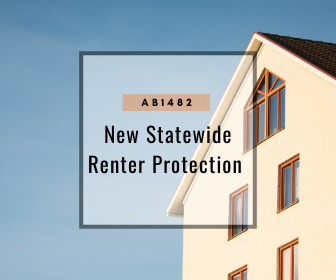The City of Los Angeles has recently updated its renter protections under Ordinance No. 187737, effective August 1, 2024. As a landlord, it’s essential to stay informed about these new rules to protect your property, avoid costly penalties, and maintain compliance. Mirage Law is here to help you navigate these changes with confidence.
Understanding the Updated Eviction Rules
Clear Steps. Confident Actions.
Under the new regulations, all renters in Los Angeles have expanded eviction protections. Landlords must provide a legally valid reason for any eviction, whether for “at-fault” or “no-fault” causes.
- At-Fault Evictions: These evictions occur when a tenant fails to comply with their lease agreement. The Just Cause Ordinance (JCO) outlines valid reasons, including:
- Nonpayment of rent
- Lease violations (e.g., unauthorized occupants or pets)
- Nuisance or illegal activities (such as drug use or gang involvement)
- Denial of access to the rental unit
- Being an unapproved subtenant at the end of the lease term
- No-Fault Evictions: No-fault evictions are allowed for specific reasons, such as:
- Owner or family member occupancy
- Compliance with a government order
- Demolition or permanent removal from the rental market
- Conversion to affordable housing
For any no-fault eviction, landlords must now submit a Declaration of Intent to Evict to the Los Angeles Housing Department (LAHD), pay a filing fee, and provide tenant relocation assistance.
Navigating Relocation Assistance Requirements
Prepare Wisely. Avoid Pitfalls.
Los Angeles now mandates relocation assistance for all no-fault evictions. Here are the specific amounts required:
- Single-Family Dwellings (SFD): If you own no more than four residential units, you are required to provide one month’s rent as relocation assistance for tenants in single-family dwellings.
- Multi-Family Units: Relocation payments depend on the tenant’s circumstances and are as follows:
- Tenants with Less Than 3 Years of Tenancy: $10,300
- Tenants with 3 or More Years of Tenancy: $13,500
- Tenants with Income Below 80% of Area Median Income: $21,750
- Qualified Tenants (elderly, disabled, or with dependent minors): $25,700
Important Note: A landlord may deduct unpaid rent from the relocation assistance, but strict documentation is required to support these deductions.
Economic Threshold for Evictions for Non-Payment of Rent
Understand the Limits. Protect Your Rights.
Effective March 27, 2023, landlords cannot evict a tenant for non-payment of rent unless the unpaid rent exceeds the Fair Market Rent (FMR) established for the property. The FMR depends on the number of bedrooms in the rental unit. For example:
- Efficiency (Studio): $1,411
- 1-Bedroom: $1,777
- 2-Bedroom: $2,006
- 3-Bedroom: $2,544
- 4-Bedroom: $3,263
If the rent owed is less than these thresholds, landlords must seek other methods to recover the debt, such as small claims court.
Rent Increase Limitations and Compliance
Maximize Revenue. Stay Legal.
- Rent Stabilization Ordinance (RSO) Units: Rent increases are capped and can only occur once every 12 months. Rent increases were frozen from March 2020 to January 2024, and no retroactive increases are allowed. An additional 1% for gas and 1% for electric service can be added if the landlord provides these utilities.
- Non-RSO Units: Under California state law AB1482, the maximum allowable rent increase is 8.8% from August 2023 to July 2024 and 8.9% from August 2024 to July 2025. Increases above these limits may require landlords to provide relocation assistance.
How to Avoid Common Pitfalls with New Regulations
Be Proactive. Protect Your Investment.
- File Proper Documentation: Submit all required eviction notices, declarations, and relocation assistance payments to LAHD. Missing or incorrect filings can lead to legal challenges.
- Maintain Clear Communication: Keep open lines of communication with tenants, and provide all necessary notices in writing to avoid misunderstandings or disputes.
- Consult with Mirage Law: Partner with a legal expert who specializes in landlord rights to ensure you are fully compliant with the new regulations and prepared to handle any disputes.
Take Action Now to Protect Your Property
Contact Mirage Law Today.
The new renter protections in Los Angeles can be complex, but you don’t have to navigate them alone. Mirage Law is here to help you understand your rights, comply with new regulations, and avoid costly mistakes.
Call Mirage Law today to schedule a consultation and ensure you are fully prepared to manage your property under the new rules. Don’t let tenant issues disrupt your peace of mind—partner with the experts who know landlord law inside and out.. Email us at ariel@miragelaw.com or call 424-256-6686.
